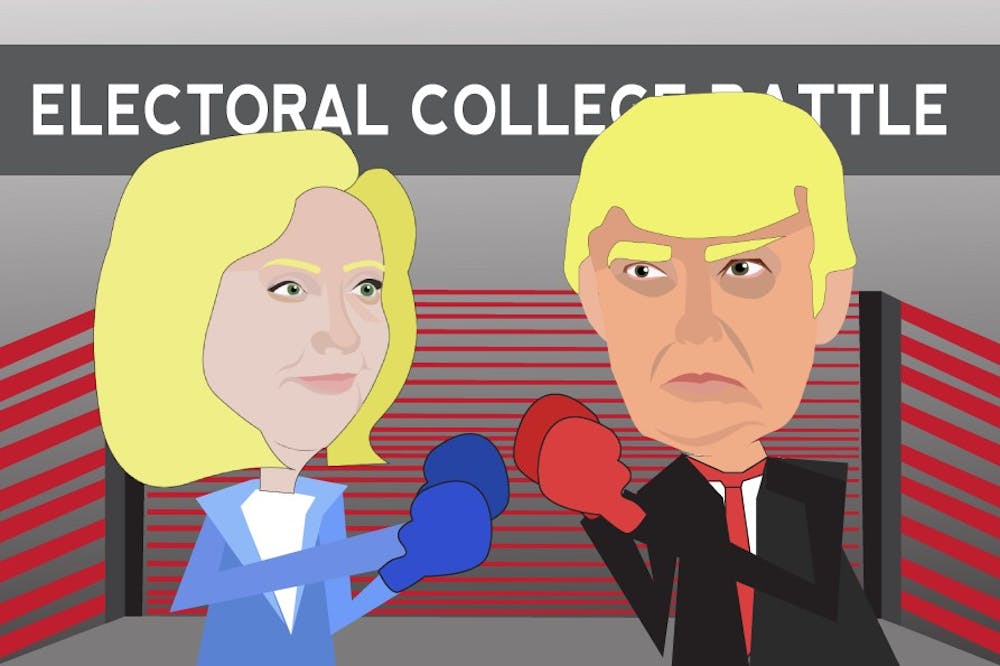This week, The State Press will tackle the local political candidates and ballot measures that Arizona residents will vote upon on Election Day, Nov. 8. Stay up to date with political guides and how-to's throughout the rest of the election season.
Every election season, new voters who are unfamiliar with how the U.S. voting process ask: “Does my vote really matter?”
One major concern during presidential elections is the Electoral College process and how the popular vote may not always be the key to winning the presidency.
This was the case in the 2000 presidential election, when Al Gore won the majority vote by approximately 540,000 (.5 percent) more votes than George W. Bush, who became the eventual president.
How is the Electoral College structured?
There are a total of 538 Electors in this system. In order to win the presidency, a candidate must receive a majority, or 270, of these electoral votes.
Each state is allotted a number of Electors based on the number of members in its congressional delegation: one for each member in the House of Representatives and two for each senator.
California has 55 electoral votes — the highest amount in the country — while Alaska, Delaware, District of Columbia, Montana, North Dakota, South Dakota, Vermont and Wyoming all tie for the least amount, with three votes each.
What is a “swing state” and how is it determined?
A swing state can be defined as a state that has equal levels of support for both major political parties, meaning the state can be won by either candidate.
Swing states change each election, depending on the social and political climate of the state. However, the only way to really determine whether a state could swing the election is by polling the state prior to Election Day.
Which states are considered swing states in this election?
According to Politico, 11 states could swing this election: Colorado, Florida, Iowa, Michigan, Nevada, New Hampshire, North Carolina, Ohio, Pennsylvania, Virginia and Wisconsin.
This accounts for 146 of the 538 total electoral votes.
Who are the Electors?
There are certain rules an Elector must follow: One is that he or she may not have held office prior to being appointed as an Elector. This means that elected officials, such as U.S. Senators and Representatives, cannot be appointed.
Each presidential candidate chooses his or her own line up of potential Electors for their party prior to Election Day. On Election Day, the popular vote in an electoral region is tallied, and the corresponding party Electors will cast their votes as representatives of the popular vote. This means that when voters submit their ballots on Election Day, they are not directly voting for a political candidate. Rather, they are are voting to be represented by these pre-selected Electors.
Are there restrictions on who the Elector can vote for?
There is no federal law that compels Electors to vote based on the results of the popular vote in his or her representative state. However, some states have laws set up to prevent Electors from going against the popular vote.
Arizona is not one of them.
Although an Elector is not forced by law to vote in favor of the popular vote in the state of Arizona, Electors almost always do because they are bound by a pledge to their own political party. An Elector who decides to defy the popular vote risks ruining his or her political reputation.
Reach the reporter at vkeys@asu.edu or follow @VKeys1231 on Twitter.
Like The State Press on Facebook and follow @statepress on Twitter.




